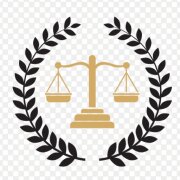Best Car Accident Lawyers in Iran
Share your needs with us, get contacted by law firms.
Free. Takes 2 min.
Or refine your search by selecting a city:
List of the best lawyers in Iran
About Car Accident Law in Iran:
Car accidents are unfortunately common in Iran, and the legal system has specific regulations in place to deal with these situations. Understanding the laws related to car accidents in Iran is crucial to ensure the protection of your rights in case of an accident.
Why You May Need a Lawyer:
There are several situations where you may need a lawyer after a car accident in Iran. Some common reasons include dealing with insurance companies, seeking compensation for injuries or damages, and navigating the legal system to ensure your rights are protected.
Local Laws Overview:
In Iran, the legal system related to car accidents is based on Islamic Law and the Civil Code. In case of a car accident, the driver at fault is responsible for compensation to the other party. It is important to report the accident to the police and insurance company as soon as possible.
Frequently Asked Questions:
1. What should I do immediately after a car accident in Iran?
It is important to report the accident to the police and your insurance company. Seek medical attention for any injuries and gather evidence at the scene if possible.
2. How is fault determined in a car accident in Iran?
Fault is determined based on the evidence gathered at the scene, witness statements, and police reports. It is important to provide all relevant information to the authorities.
3. Can I claim compensation for injuries after a car accident in Iran?
Yes, if you have sustained injuries in a car accident in Iran, you may be eligible to claim compensation for medical expenses, lost wages, and pain and suffering.
4. Is car insurance mandatory in Iran?
Yes, it is mandatory to have car insurance in Iran, and having valid insurance can help protect you in case of a car accident.
5. How long do I have to file a claim after a car accident in Iran?
The timeframe for filing a claim after a car accident in Iran can vary, but it is recommended to do so as soon as possible to ensure your rights are protected.
6. Can I settle a car accident claim out of court in Iran?
Yes, it is possible to settle a car accident claim out of court in Iran through negotiation with the other party or their insurance company.
7. What legal options do I have if the other party denies fault in a car accident in Iran?
If the other party denies fault in a car accident in Iran, you may need to provide evidence to support your claim and seek legal assistance to navigate the legal system.
8. Are there any specific laws in Iran regarding drunk driving accidents?
Driving under the influence of alcohol is strictly prohibited in Iran, and penalties for drunk driving accidents can be severe, including fines, suspension of driving license, and legal consequences.
9. How can a lawyer help me with a car accident claim in Iran?
A lawyer can help you navigate the legal system, gather evidence, negotiate with insurance companies, and ensure your rights are protected in a car accident claim in Iran.
10. What are the common challenges people face in car accident claims in Iran?
Common challenges in car accident claims in Iran include proving fault, dealing with insurance companies, understanding legal procedures, and negotiating fair compensation for damages and injuries.
Additional Resources:
For further assistance with car accident claims in Iran, you may contact the Traffic Police Department, Iranian Bar Association, or local legal aid organizations for guidance and support.
Next Steps:
If you need legal assistance with a car accident claim in Iran, consider contacting a reputable law firm specializing in traffic accidents to discuss your case and explore your options for seeking compensation and justice.
Lawzana helps you find the best lawyers and law firms in Iran through a curated and pre-screened list of qualified legal professionals. Our platform offers rankings and detailed profiles of attorneys and law firms, allowing you to compare based on practice areas, including Car Accident, experience, and client feedback.
Each profile includes a description of the firm's areas of practice, client reviews, team members and partners, year of establishment, spoken languages, office locations, contact information, social media presence, and any published articles or resources. Most firms on our platform speak English and are experienced in both local and international legal matters.
Get a quote from top-rated law firms in Iran — quickly, securely, and without unnecessary hassle.
Disclaimer:
The information provided on this page is for general informational purposes only and does not constitute legal advice. While we strive to ensure the accuracy and relevance of the content, legal information may change over time, and interpretations of the law can vary. You should always consult with a qualified legal professional for advice specific to your situation.
We disclaim all liability for actions taken or not taken based on the content of this page. If you believe any information is incorrect or outdated, please contact us, and we will review and update it where appropriate.
Browse car accident law firms by city in Iran
Refine your search by selecting a city.









